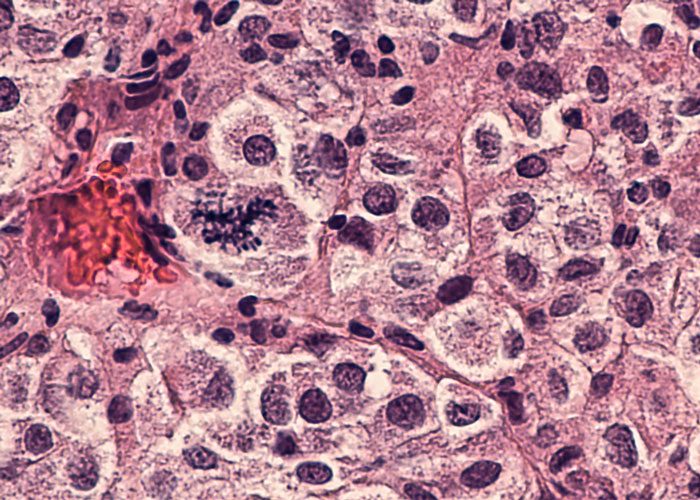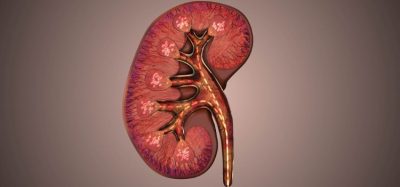Nivolumab superior to ipilimumab for adjuvant treatment of melanoma
Posted: 12 September 2017 | Dr Zara Kassam (European Pharmaceutical Review) | No comments yet
Adjuvant nivolumab has been found to be more superior than ipilimumab in the standard of care in patients with surgically resected stage III/IV melanoma…


Adjuvant nivolumab has been found to be more superior than ipilimumab in the standard of care in patients with surgically resected stage III/IV melanoma who are at high risk of relapse, according to late-breaking results from the CheckMate 238.
The anti-programmed death-1 (PD-1) antibody nivolumab led to better relapse-free survival, with fewer side effects than ipilimumab.
Adjuvant therapy is given after initial cancer treatment with the goal of preventing metastases. Drugs that are effective in metastatic disease may be given as adjuvant therapy to patients who have been surgically resected of their disease and are at high risk of relapse.
Nivolumab and ipilimumab are immune checkpoint inhibitors approved for metastatic melanoma. Ipilimumab is also the Food and Drug Administration (FDA)-approved standard of care adjuvant therapy for resected stage III melanoma in the United States.
Nivolumab was well tolerated and showed promising survival results when investigated as adjuvant therapy in a pilot study of 33 patients with resected stage IIIC and IV melanoma.
The benefit shown for nivolumab in metastatic disease and those pilot data provided the impetus for a randomised, double-blind, phase III trial comparing adjuvant treatment with nivolumab versus standard of care ipilimumab.
The trial included 906 patients with stages IIIB, IIIC, and IV resected melanoma who had a greater than 50% risk of relapse over five years. Patients were randomised 1:1 to either treatment.
The primary end point was relapse-free survival. Overall survival was a secondary endpoint which will be complicated by the anticipation that patients will cross over to the alternative drug upon relapse.
The trial was stopped early by the data safety monitoring committee due to clear evidence of benefit for nivolumab.
The planned interim analysis which occurred at a minimum follow-up of 18 months, presented today, shows that the rate of relapse-free survival was significantly improved with nivolumab (66.4%) compared to ipilimumab (52.7%), with a hazard ratio of 0.65 (p < 0.0001). There were similar results across prespecified subgroups of patients.
There were fewer treatment-related, clinically relevant side effects (grade 3/4) in the group treated with nivolumab (14%) compared to those treated with ipilimumab (46%). Just 10% of patients taking nivolumab had to stop treatment due to side effects compared to 43% taking ipilimumab.
First author Dr Jeffrey Weber, deputy director, Perlmutter Cancer Center, NYU Langone Health, New York, USA, said: “The results clearly show that relapse-free survival is more favourable with nivolumab. The majority of patients had higher risk disease than in most prior adjuvant melanoma trials, which makes the findings even more encouraging.”
“A previous trial found that ipilimumab had a significant relapse-free and overall survival advantage compared to placebo,” continued Dr Weber.
Dr Weber concluded: “Nivolumab looks like a superior adjuvant melanoma regimen compared to ipilimumab from every angle. It leads to better relapse-free survival, has fewer side effects, and is well tolerated.”
Professor John Haanen, head, Division of Medical Oncology, Netherlands Cancer Institute, Amsterdam, the Netherlands, said: “An adjuvant trial presented at the ESMO 2016 Congress showed that ipilimumab gave an overall survival advantage over placebo but it was highly toxic. In the US it has become the standard of care but this is still being debated in Europe.”
Commenting on the findings presented today, Prof Haanen said: “The results of CheckMate 238 are very exciting. They show for the first time that an anti-PD-1 drug is superior in the adjuvant setting and because of its lower toxicity nivolumab is much easier to give than ipilimumab. The same occurs in the metastatic setting where anti-PD-1 treatment is more efficacious and has a much better safety profile and has replaced ipilimumab as first line treatment.”
Another anti-PD-1 drug, pembrolizumab, is being tested as an adjuvant therapy against placebo in patients with resected stage III melanoma in a phase III European Organisation for Research and Treatment of Cancer (EORTC) trial. Prof Haanen said:
“If relapse-free survival is better with pembrolizumab, it is likely that adjuvant anti-PD-1 will become the standard of care for high-risk melanoma in the near future, provided an overall survival benefit is also shown.”
The trial was presented at the ESMO 2017, and published in the New England Journal of Medicine(NEJM).
Related topics
Anti-Cancer Therapeutics, Clinical Trials, Drug Targets, Research & Development (R&D)









